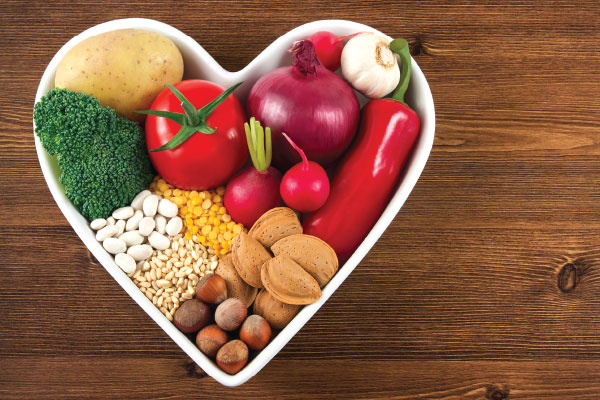Clean eating has been a buzz word for quite some time now, but what exactly does it mean and what’s the best way to go about it?
Essentially, clean eating means taking in more natural whole foods, or those with as little processing as possible; that means vegetables, fruits, nuts, whole grains and high-quality proteins and fats. But that doesn’t mean you have to give up all your favourite dishes. There are plenty of simple food swaps that will have you eating more cleanly in no time at all.
l Fruit – Instead of processed fruit juices, which can contain high levels of sugar and additives, eat the whole fruit – it’s more satisfying and filling as you’re also getting the added fibre. And don’t shy away from frozen or tinned foods, particularly when fresh imported fruits tend to be rather expensive. As long as they’re frozen without added sugar, they’re fine for two portions a day.
l Vegetables – Look out for locally grown versions, particularly since winter is the season of the regular Farmers’ Market. If you decide to go for frozen, make sure you’re not buying creamed or those with a sauce added – you’ll probably be taking in added salt and sugar at the least – look instead for just plain frozen which contain just as many nutrients as their ‘fresh’ counterparts and are often actually fresher, having been frozen at the point of harvest.
l Yoghurt – Rather than flavoured yoghurts, which can hide a serious amount of sugar, opt for an unsweetened natural version. Add your own favourite fruits, whizz them in the blender first if you prefer a puree and, if you fancy something sweeter, add a drizzle of honey.
l Pasta – Much as the thought of home-made pasta is a nice idea, most of us aren’t up to producing this mama’s own speciality. If you’re going for shop bought, pick dried whole wheat rather than dried white. It takes a little longer to cook but also gives a much more robust and interesting flavour.
l Rice – Likewise, go for brown rather than white rice. Brown will take a bit longer to cook but the health benefits are worth it as it hasn’t had its fibre-rich layers of germ and bran removed.
l Bread – Once again, whole grain trumps white. The heavier grain breads are also significantly denser than white, taking longer to eat and contributing to the feeling of satiation.
l Nuts – Ditch the roasted versions which are coated in salt and oil. Instead buy the raw nuts which are widely available and roast them yourself. The same goes for peanut butter. Sounds as if it should be a ‘no, no’ but it’s actually not a problem if you look for one that’s minimally processed, containing just nuts and a dash of salt.
l Salad dressing – All but the most basic shop-bought salad dressings are best replaced since most contain additives, preservatives and all manner of other less than clean ingredients. Plump instead for simple oil and vinegar (balsamic if you prefer) mix together well and add in your own choice of garlic, chilli, herbs etc.
l Fish – If you’re buying local-caught, well and good. If you prefer imports, such as salmon, try to opt for wild-caught rather than farmed. It’s healthier both for you and the environment. There’s also nothing wrong with tinned fish, just make sure it’s not packed with salt and loads of oil since the fish contains plenty of good oils by itself.
l Eggs and meat – Look for pasture-raised, free-range or organic rather than intensively produced.


































